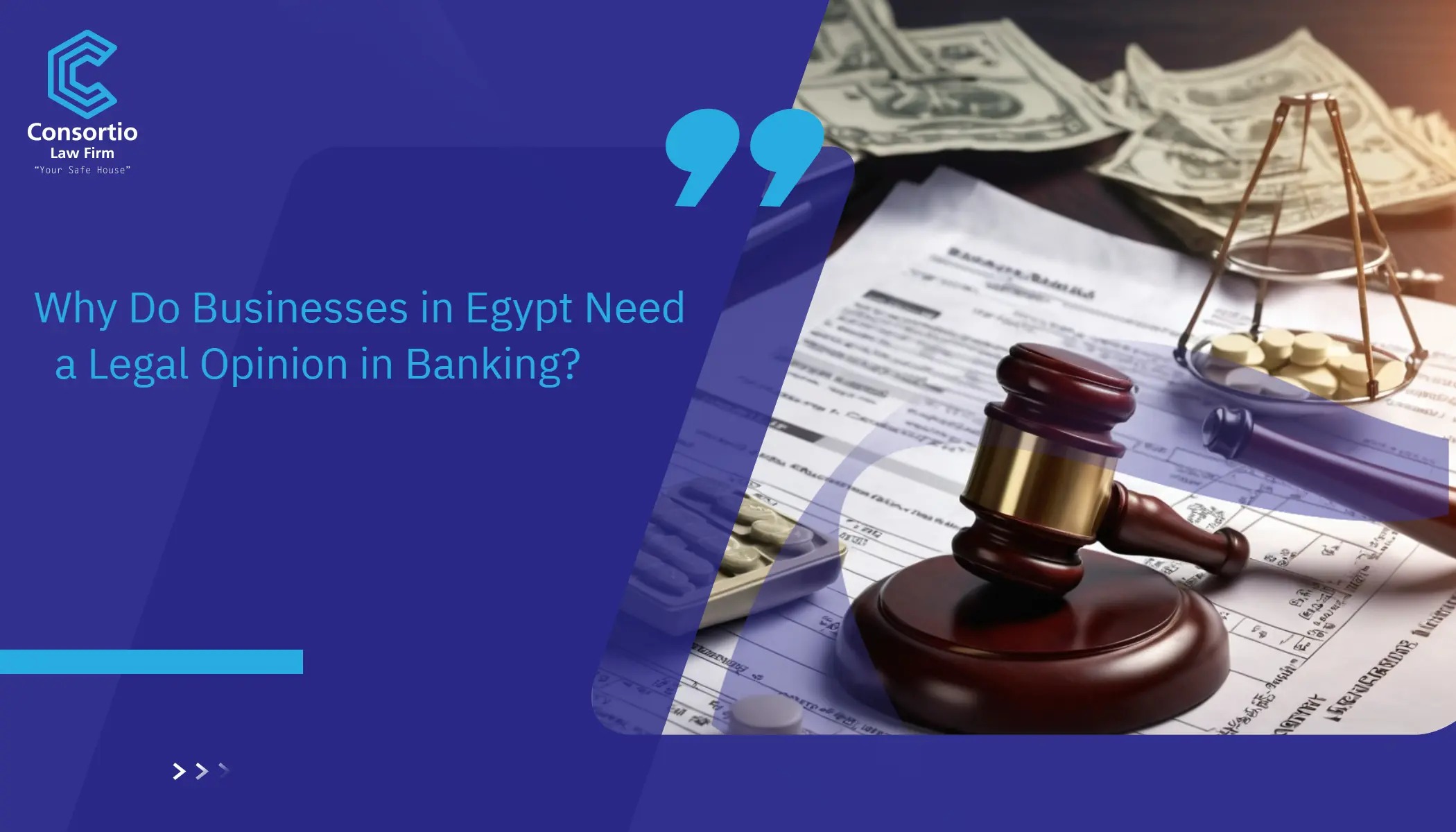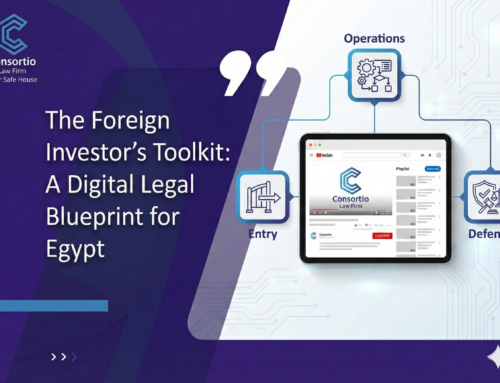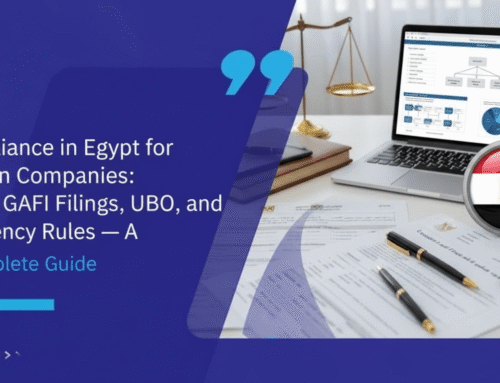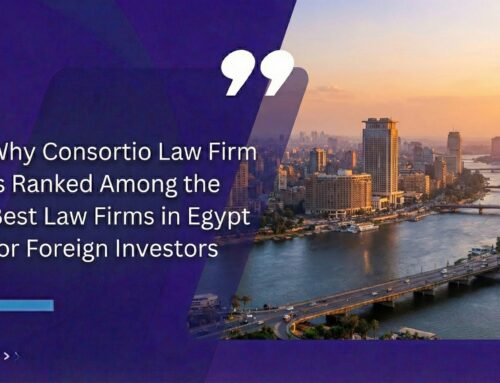In the competitive world of business and banking in Egypt, businesses need more than ambition to grow, they need assurance, credibility, and legal clarity. This is where a Legal Opinion in Banking acts as a powerful validation tool, confirming that your business complies with local laws and is financially and structurally sound. It gives banks and investors the confidence to say “yes,” whether you’re securing a loan, entering a joint venture or engaging in cross-border transactions.
Why Do Businesses in Egypt Need a Legal Opinion in Banking?
Businesses in Egypt, like in many jurisdictions, often require legal opinions in banking for several important reasons. Here’s some of these reasons:
-
Legal Certainty and Risk Mitigation
A legal opinion provides businesses and banks with assurance that a transaction complies with Egyptian law, reducing the risk of future legal disputes or invalid agreements.
-
Enforceability of Contracts
Banks need to ensure that contracts are legally binding under Egyptian law. A legal opinion confirms that agreements, such as loans or guarantees, are enforceable in local courts.
-
Regulatory Compliance
Egypt’s financial regulations can be complex. Legal opinions confirm that the transaction adheres to rules from authorities like the Central Bank of Egypt, avoiding regulatory breaches.
-
Cross-Border Transactions
Foreign banks or investors often require legal opinions to confirm that Egyptian law permits the transaction and that it won’t be blocked or restricted by local laws.
-
Corporate Authority Checks
Legal opinions verify that the business has followed internal procedures, such as board approvals and has the legal power to enter into banking agreements.
Role of Legal Opinions in Loan and Financing Transactions in Egypt
Legal opinions in banking are essential in loan and financing transactions to ensure legal certainty and compliance. Here’s an explanation of their important roles:
-
Legal Validity Check
Confirms that the loan and related documents are legally valid and do not violate Egyptian laws.
-
Authority and Capacity Confirmation
Verifies that the borrower has the legal power and corporate approvals (like board or shareholder resolutions) to enter into the financing agreement.
-
Regulatory Compliance
Ensures the transaction follows Egyptian financial laws and Central Bank of Egypt regulations, including those on borrowing, foreign exchange, or interest rates.
-
Risk Mitigation for Lenders
Identifies any legal risks that could impact the transaction, helping lenders avoid enforceability or compliance issues later.
-
Cross-Border Assurance
For deals involving foreign lenders, it confirms there are no local restrictions on fund transfers, repayments, or enforcement of judgments.
-
Due Diligence Support
Forms a critical part of the lender’s legal due diligence, providing assurance that the borrower and deal structure are sound.
-
Contract Enforceability
Confirms that loan agreements and any security documents can be enforced in Egyptian courts if the borrower defaults.
Impact of Legal Opinion in Banking on Cross-Border Transactions
In cross-border banking transactions, legal opinions play a crucial role in building trust between local borrowers and foreign lenders.
Here’s a clear breakdown of its impacts:
-
Legal Clarity Across Jurisdictions
Legal opinions explain how local laws apply to the transaction, helping foreign banks understand legal risks and requirements in the borrower’s country.
-
Compliance with Local Regulations
Ensures the transaction complies with exchange control rules, CBE regulations and any restrictions on foreign debt or repatriation of funds.
-
Facilitates Funding and Loan Disbursement
Lenders often require a legal opinion as a condition precedent to disbursing funds, especially in syndicated or multi-jurisdiction deals.
-
Reduces Legal and Political Risk
Helps lenders assess and mitigate risks related to legal enforceability, currency controls or sudden regulatory changes in the borrower’s country.
-
Builds Confidence and Trust
Provides reassurance to foreign banks and investors, making them more likely to engage in cross-border financing with Egyptian entities.
Consortio: The Right Choice for Legal Opinion in Banking in Egypt
When it comes to legal opinions in banking, especially for high-stakes or cross-border transactions, “Consortio Law Firm” stands out as a trusted and experienced partner for delivering reliable legal opinions in Egypt’s banking sector for banks and businesses alike.
key reasons why “Consortio” is the best choice including:
- Specialized expertise in banking and finance law, including loans and project finance.
- Deep understanding of Egyptian banking regulations and Central Bank rules.
- Trusted by both local and international banks for legal opinions.
- Extensive experience handling cross-border and multi-jurisdictional transactions.
- Delivers clear, precise, and reliable legal opinions that reduce risks.
- Provides comprehensive support throughout the transaction process.
- Known for professionalism, accuracy and strong client confidentiality.
Overall, “Consortio Law Firm” is your trusted partner, offering precise legal opinions that safeguard your transactions and protect your interests.
Have questions about your financing transaction?
Contact us Today to learn how we can support your business with expert Counsel Opinion, via:
Phone number: 002-01028806061.
Via: WhatsApp.
Email: Info@consortiolawfirm.com.
FAQ’s
-
What is a legal opinion in banking in Egypt?
A legal opinion is a formal document issued by a legal advisor confirming that a transaction or agreement complies with Egyptian laws and regulations.
-
Why do banks require a legal opinion from businesses?
Banks often require legal opinions to verify that the business has the legal authority to enter into a financial transaction and that the agreement is enforceable under Egyptian law.
-
What does a legal opinion usually include?
It typically includes statements on the legal status of the company, its capacity to enter into the agreement, authority of signatories, and enforceability of the agreement.





